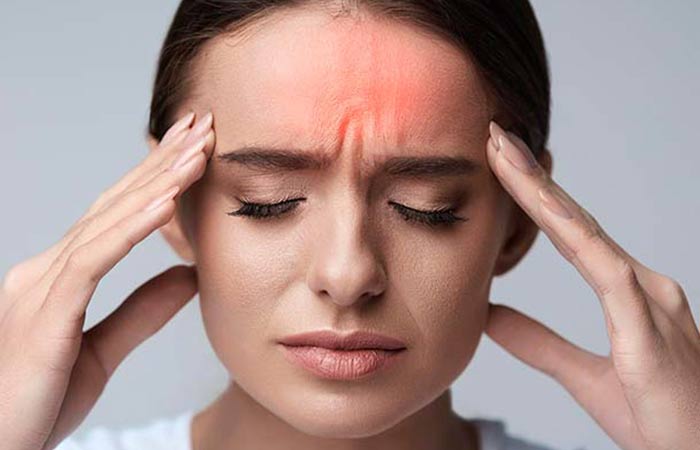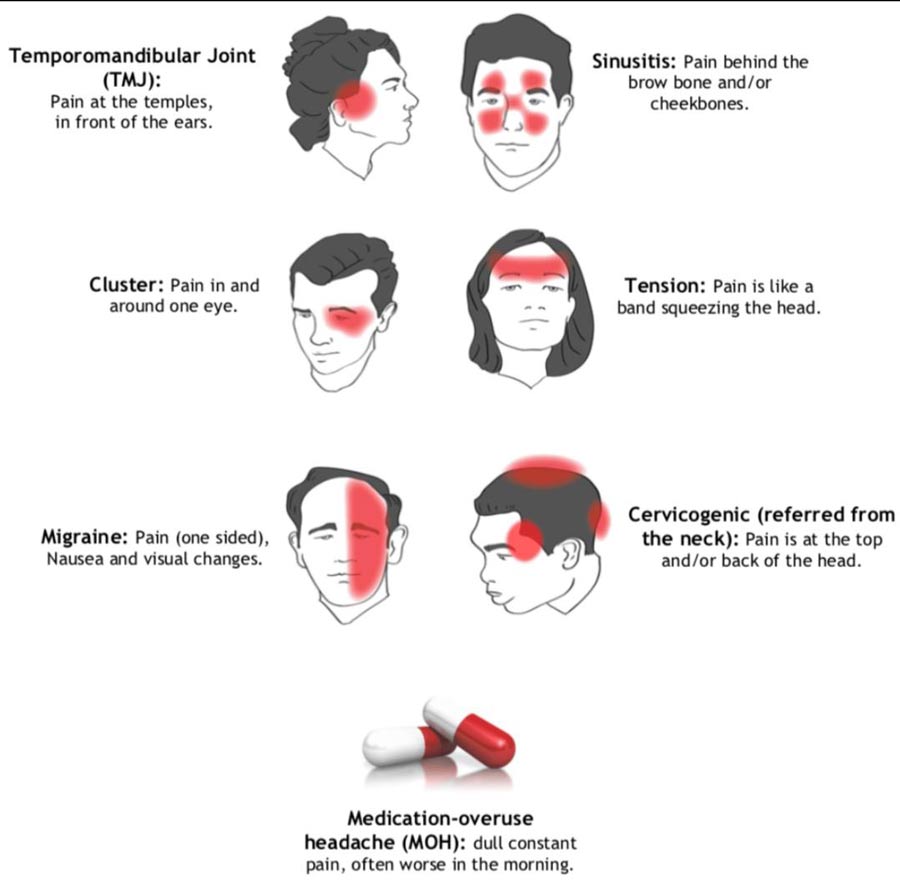Do Probiotics Cause Headaches
What is the link between probiotics and headaches? Do probiotic foods, drinks or supplements cause or relieve pain arising from the head or upper neck of the body? Let’s find out.
Can Probiotics Cause Headaches?
A few probiotic users report headaches and migraines. While probiotic supplements don’t trigger headaches, some probiotic-rich foods may cause mild symptoms. The adverse symptoms are likely due to amines, which are substances that are created when protein-rich foods age or undergo fermentation.

Some foods rich in protein and probiotic bacteria – like sauerkraut, yogurt, kimchi – also contain traces of amines. Common mines that you’ll find in probiotic-rich foods include phenylethylamine, tryptamine, tyramine, and histamine.
Amines can overstimulate your central nervous system, rapidly decrease or increase blood flow, and trigger headaches. Results from one study revealed that a low-histamine diet reduced migraines and headaches for 75% of participants. However, an analysis of 10 dietary studies found that dietary amines don’t affect headaches significantly.
The two amines associated with headaches are tyramine and histamine. Tyramine is present in some commercially fermented products like aged cheese, yogurt, soy sauce, sauerkraut, and red wine. Histamine is present in some commercial products like vinegar, sauerkraut, and chocolate.
You should note that in this case, it’s the amines that cause headaches (not the probiotics). And it’s only a few people, who lack the specific enzyme needed to metabolize amines, who experience the symptoms. Besides headaches, amines are associated with other adverse reactions, including depression, skin rash, stomach problems, itching, fever, and more.
The headache symptoms could also be a result of a mild Herxheimer-like reaction. This occurs when yeast or bacteria in your gut is decimated in large numbers.
These ‘candida die-off symptoms’ result from older bacteria in gastrointestinal tract drying off and generating pro-inflammatory cytokines. This can lead to the discharge of endotoxins or cause oxidative stress. Fortunately, these symptoms are temporary; they will clear off once your body acclimatizes to the probiotic, and your gut health is restored.
Is there a direct link between amines and headaches? Further research is needed to establish the relationship between the two. To uncover whether fermented foods are the cause of your symptoms, keep a food diary.

How to Get Rid of Probiotic Headaches
Moderate your Probiotics
If there seems to be a correlation between your probiotic regimen and undesirable symptoms like headaches, try lowering the quantity of fermented food you consume or your probiotic dosage. This can altogether eliminate or minimize your symptoms.
Keep Hydrated
Staying hydrated can also limit adverse symptoms by flushing out toxins from your body. The probiotic linked symptoms like headaches are likely triggered by toxins released during Herxheimer-like reactions.
The candida by-products like uric acid, ethanol, and acetaldehyde will float around in your lymph and bloodstream. Drinking more water will help your kidneys process those toxins much faster through sweat and urine. Bone broths are also quite an effective remedy.
Strive to drink about 3 liters of pure water daily. To make your water a bit more palatable, add a dash of Himalayan salt and a squeeze of apple cider. They both have alkaline properties, and so could help get rid of the symptoms too.
How to Limit Undesirable Symptoms
Consult Your Doctor
Before you give a probiotic supplement to a child, always consult your pediatrician first. Besides, if you’re nursing or pregnant, you should talk to your doctor before starting a probiotic regimen.
In the US, probiotics are classified as dietary supplements. This means the firms that make and sell them don’t need FDA approval before launching their products. So safety is a crucial issue. Let your doctor point you to the probiotics supplements suitable for you. If you experience any problems, stop taking them.
Be Aware of Your Immunity
People who’re experiencing issues with their immune system are much more vulnerable to negative probiotics-related symptoms. Some studies have noted a link between probiotics and severe infections and side effects. So if you’re critically ill or have just undergone surgery, you should consult a doctor before taking probiotics.
Take the Right Dose
There is little evidence that suggests that you can experience probiotics overdose. However, it’s prudent to read the labeling and stick to manufacturers’ recommendations on dosage. The optimal dosage varies depending on your health and the kind of probiotic product you’re taking.
Tips on How to Avoid Headaches Linked to Amines
- Avoid processed and canned foods.
- Consume fresh probiotic-rich foods
- Slightly spoiled food can contain large quantities of amines.
- Track what you eat to zero in on the amines causing symptoms
Probiotic supplements don’t contain amines. But, poor-quality supplements may contain soy, artificial coating, gluten, wheat, and other substances. If you’re sensitive to any of these substances, you might experience undesirable symptoms like headaches.
Is Homemade Vegan Fermented Food Safer?
According to some interesting studies, some traditional fermented veggies contain minimal traces of amines – too low to trigger adverse reactions in most people.
To get the best results, opt for a high-quality starter culture. This will ensure that the biogenic amines produced during the fermentation process are too low to cause headaches. If you experience no adverse symptoms, that could be a sign that your gastrointestinal tract is healthy.
Can Probiotics Reduce the Occurrence of Headaches and Brain Disorders?
Just like migraine headaches, a lot of brain disorders are linked to increased gut permeability. So improving gut microbiota and reducing inflammation can bolster brain and gut function. It can, therefore, be inferred that consuming probiotics likely reduces the severity and frequency of migraine attacks.
T placebo-controlled and randomized studies are needed to ascertain the safety and efficacy of probiotics in migraine patients.
In a Nutshell
- Probiotics may trigger headaches while revitalizing your gut environment and eliminating harmful microorganisms. The side effects are temporary and harmless. Infections, inflammations, or candida overgrowth may exacerbate these symptoms.
- Some fermented foods contain significant amounts of amines that may trigger headaches in sensitive persons. Homemade vegan fermented food and high-quality supplements are safer. Studies show that reducing your amine intake with a low-histamine diet corresponds with reduced headache symptoms.
- Consult your doctor before you start on a probiotic regimen and maintain a food diary. If you experience adverse effects, consider refraining or reducing the probiotic supplement or food that may have triggered the symptoms.